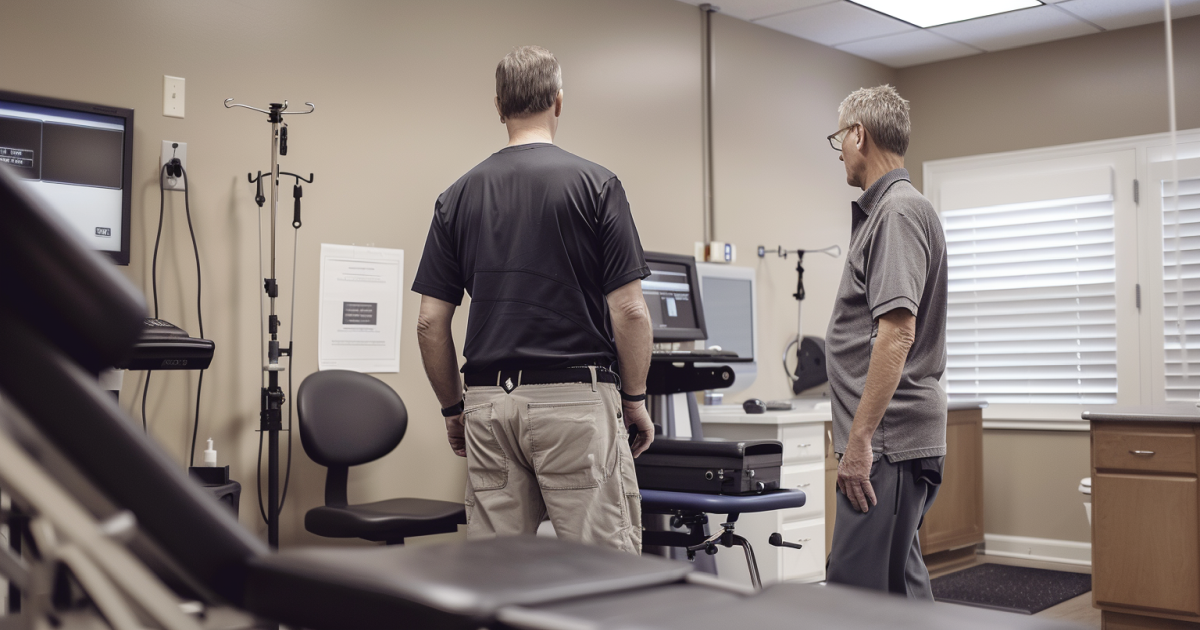Did you know that medication-assisted treatment (MAT) has been shown to reduce the risk of fatal overdose in individuals struggling with opioid addiction? This statistic, backed by the National Institute on Drug Abuse, underscores the life-saving potential of MAT.
Medication-assisted treatment is a comprehensive approach that combines FDA-approved medications with counseling and behavioral therapies. This integrative method addresses the complex nature of substance use disorders and helps individuals achieve long-term recovery.
We want to explore along with you the different types of medication-assisted treatment, how each one works, and the unique benefits they offer. Whether you are seeking help for yourself or a loved one, we at Colorado Medication Assisted Recovery can help you take that first vital step toward addiction recovery.

Understanding Medication-Assisted Treatment (MAT)
Medication-assisted treatment (MAT) is a holistic approach that combines FDA-approved medications with counseling and behavioral therapies to treat substance use disorders. This method addresses both the physical and psychological aspects of addiction, providing a comprehensive pathway to recovery.
How MAT Works
- Medications: MAT utilizes medications to normalize brain chemistry, block the euphoric effects of alcohol and opioids, relieve physiological cravings, and stabilize body functions. The medications used in MAT do not substitute one addictive substance for another; instead, they help manage withdrawal symptoms and reduce the risk of relapse.
- Counseling and Behavioral Therapies: Alongside medications, MAT includes counseling and behavioral therapies to address the psychological aspects of addiction. These therapies help individuals develop coping strategies, improve their mental health, and build a support system.
Benefits of MAT
- Reduces Cravings and Withdrawal Symptoms: MAT medications help alleviate the intense cravings and withdrawal symptoms that often lead to relapse.
- Improves Treatment Retention: Individuals receiving MAT are more likely to stay in treatment compared to those who do not.
- Enhances Overall Recovery Outcomes: By addressing both the physical and psychological aspects of addiction, MAT improves the chances of long-term recovery and reduces the risk of overdose.
Types of Medication-Assisted Treatment
Medication-assisted treatment (MAT) encompasses a variety of medications, each designed to aid in recovery from substance use disorders. Here, we explore the different types of medication-assisted treatment, detailing all you need to know in order to make an informed decision.
Buprenorphine (Suboxone, Subutex, Sublocade)
Overview: Buprenorphine is a partial opioid agonist that can be prescribed by certified physicians and dispensed at pharmacies, offering more flexibility than methadone.
How Buprenorphine Works:
- Buprenorphine binds to opioid receptors in the brain, reducing cravings and withdrawal symptoms without producing significant euphoria.
Suboxone:
- Contains: Buprenorphine and naloxone.
- Benefits:
- Reduces misuse potential due to the inclusion of naloxone.
- Can be taken at home, increasing accessibility.
Subutex:
- Contains: Buprenorphine only.
- Benefits:
- Suitable for individuals who may be allergic to naloxone.
- Effective in reducing cravings and withdrawal symptoms.
Sublocade:
- Contains: Extended-release buprenorphine.
- Benefits:
- Monthly injection, improving adherence and reducing the need for daily dosing.
Naltrexone (Vivitrol)
Overview: Naltrexone is an opioid antagonist used to treat both opioid and alcohol addiction, available in both pill form and as a monthly injection (Vivitrol).
How Naltrexone Works:
- Naltrexone works by blocking opioid receptors, preventing the euphoric effects of opioids and alcohol.
Benefits and Considerations:
- Benefits:
- Non-addictive and has no potential for abuse.
- Reduces cravings for alcohol and opioids.
- Monthly injection (Vivitrol) improves adherence.
- Considerations:
- Requires detoxification before starting treatment.
- Not suitable for individuals with liver issues.
Disulfiram (Antabuse)
Overview: Disulfiram is used to treat chronic alcoholism by causing unpleasant effects when alcohol is consumed.
How Antabuse Works:
- Antabuse works by inhibiting the enzyme involved in metabolizing alcohol, leading to an accumulation of acetaldehyde and causing symptoms like nausea, vomiting, and headaches when alcohol is consumed.
Benefits and Considerations:
- Benefits:
- Acts as a deterrent to alcohol consumption.
- Supports abstinence in highly motivated individuals.
- Considerations:
- Requires strict adherence to avoid accidental alcohol consumption.
- Can interact with other substances containing alcohol.

How to Choose the Right Medication-Assisted Treatment
Selecting the most suitable Medication-Assisted Treatment (MAT) is a vital step in achieving successful recovery from substance use disorders. With several options available, it is important to consider various factors and work closely with healthcare providers to determine the best fit. Let’s examine the most important factors:
Type of Substance Use Disorder
- The specific substance being abused (e.g., opioids, alcohol) can influence the choice of medication.
- For opioid addiction, medications like methadone, buprenorphine, and naltrexone may be considered.
- For alcohol addiction, naltrexone and disulfiram (Antabuse) are commonly used.
Severity of Addiction
- The intensity and duration of the addiction can impact the effectiveness of different MAT options.
- For severe opioid addiction, methadone may be preferred due to its long-acting properties.
- For less severe cases, buprenorphine or naltrexone might be more appropriate.
Medical History
- Existing medical conditions, such as liver disease, can affect the choice of medication.
- Some medications, like naltrexone, may not be suitable for individuals with liver issues.
Lifestyle and Preferences
- The patient’s daily routine and lifestyle can influence treatment adherence.
- Medications like Sublocade, which require monthly administration, may be more convenient for some individuals.
Role of Healthcare Providers
At CMAR, we truly understand the importance of healthcare providers in guiding individuals to the right MAT. Through comprehensive assessments, we take the time to delve into each patient’s unique medical history, addiction severity, and individual preferences. We even make sure there the insurance verification process goes as smoothly as possible. This allows us to create personalized treatment plans that offer the best possible chance for successful recovery.
Individualized Treatment Plans
Creating personalized treatment plans is crucial as they cater to the specific needs and circumstances of each person. These plans frequently integrate the different types of medication-assisted treatment with behavioral therapies and counseling, offering a holistic approach to recovery. By prioritizing the overall well-being of each individual, we at CMAR can develop tailored plans that enhance treatment adherence and long-term results. This approach ensures that each person receives the best possible care for their unique situation.

Combining MAT with Behavioral Therapies
While medication-assisted treatment (MAT) addresses the physical aspects of addiction, combining it with behavioral therapies provides a comprehensive approach to recovery. This integrated method not only helps manage withdrawal symptoms and cravings but also addresses the underlying psychological factors contributing to substance use disorders.
How Does Behavioral Therapy Work in MAT
Behavioral therapies are designed to modify attitudes and behaviors related to drug use, enhance life skills, and support other forms of treatment. These therapies play a crucial role in helping individuals understand the root causes of their addiction and develop healthier coping mechanisms.
Benefits of Combining MAT with Counseling and Therapy
- Holistic Treatment: Combining MAT with behavioral therapies addresses both the physical and emotional aspects of addiction, providing a more holistic treatment approach.
- Improved Coping Strategies: Behavioral therapies help individuals develop effective coping strategies to deal with stress, triggers, and cravings.
- Enhanced Motivation: Counseling sessions can boost motivation, helping individuals stay committed to their recovery goals.
- Relapse Prevention: Therapies teach skills to manage triggers and prevent relapse, increasing the likelihood of long-term recovery.
Effective Behavioral Therapies Used with MAT
Cognitive Behavioral Therapy (CBT)
- Overview: CBT focuses on identifying and changing negative thought patterns and behaviors. It is effective in treating various behavioral health disorders, including addiction, depression, and anxiety.
- Benefits: Helps individuals recognize and manage triggers, develop problem-solving skills, and build healthier habits. CBT is versatile and evidence-based, making it a cornerstone of addiction treatment programs.
Contingency Management (CM)
- Overview: CM uses positive reinforcement to encourage sobriety and adherence to treatment.
- Benefits: Provides tangible rewards for meeting treatment goals, which can enhance motivation and engagement.
Motivational Interviewing (MI)
- Overview: MI is a client-centered counseling style that enhances motivation to change.
- Benefits: Helps individuals resolve ambivalence about recovery and strengthens their commitment to positive behavioral changes.
Family Therapy
- Overview: Family therapy involves family members in the treatment process to improve communication and support.
- Benefits: Strengthens family dynamics, provides a support system, and addresses any familial factors contributing to addiction.
12-Step Facilitation Therapy
- Overview: This therapy encourages participation in 12-step programs like Alcoholics Anonymous (AA) or Narcotics Anonymous (NA).
- Benefits: Provides a structured approach to recovery with peer support and a sense of community.
Your Next Steps
Medication-assisted treatment (MAT) is incredibly important in providing support to individuals struggling with substance use disorders. By combining FDA-approved medications with behavioral therapies, MAT offers a comprehensive approach that addresses both the physical and psychological aspects of addiction, providing a pathway to complete recovery. Unfortunately, many people still do not have access to this vital form of treatment. This emphasizes the critical need to comprehend the different types of medication-assisted treatment in order to effectively provide support to those in need.
If you or someone you care about is struggling with addiction, it’s crucial to seek professional support. Medication-assisted treatment can provide the necessary help to overcome addiction and lead a healthier, more fulfilling life.
Take the first step toward recovery today by reaching out to Colorado Medication Assisted Recovery. Our team of experienced professionals is committed to offering personalized, compassionate care to help you or your loved one achieve lasting recovery. Don’t hesitate to take charge of your life. Begin your journey toward a brighter, healthier future. Our caring team is here to assist you every step of the way.































